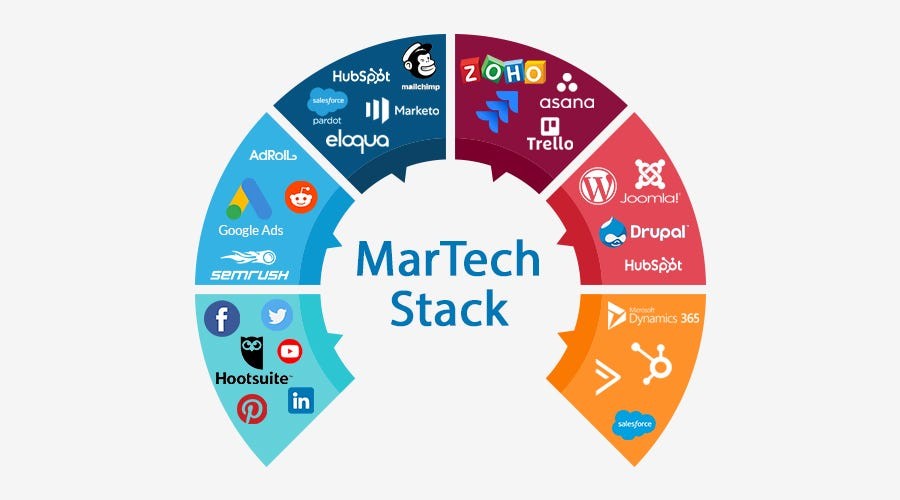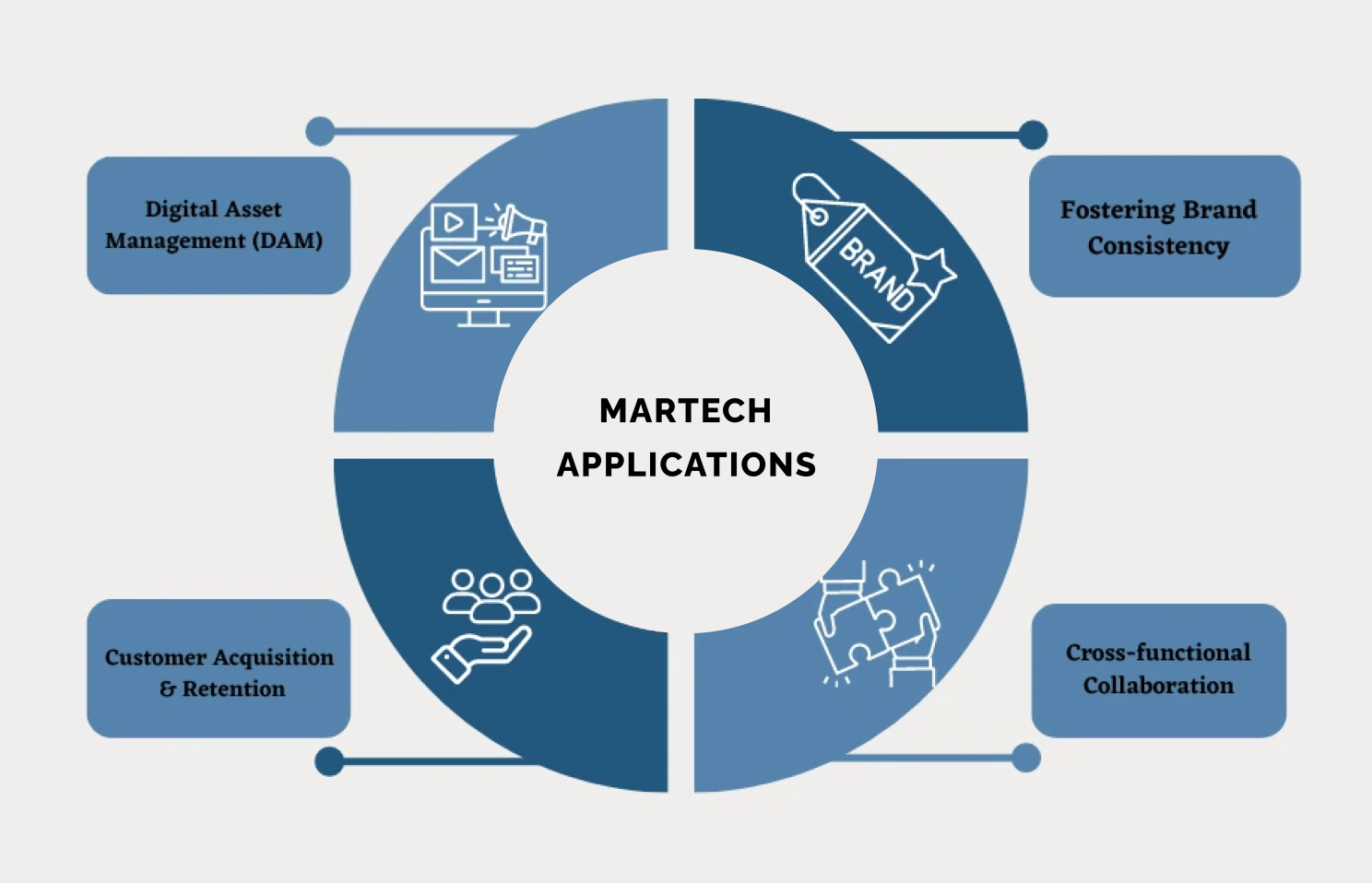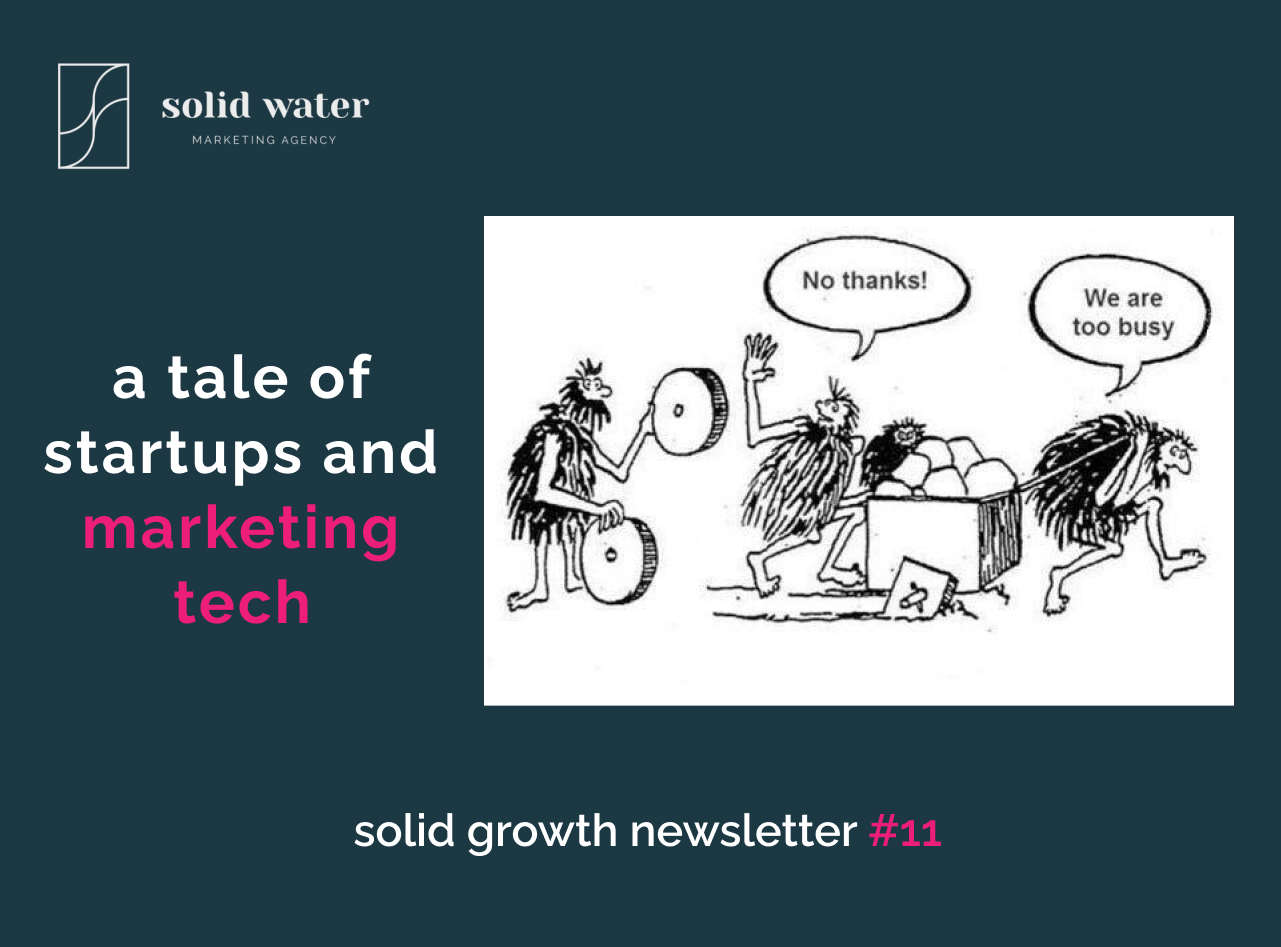Let’s debunk a myth right off the bat: thinking about a MarTech (marketing technology) strategy isn’t just for the big players. Even as you’re sketching out your pre-launch campaigns to prove your product-market fit (PMF), you should be thinking which tools can help with tracking the right KPIs, generating customer insights and implementing these learnings swiftly.

Anastasia Dobronravova, Marketing Strategy at Solid Water Marketing Agency:
“A friend of mine launched a “camp for digital nomads” in Sri Lanka. The product (camp) is great, the website is well-designed and well-structured. A performance manager was hired to launch advertising campaigns. It’s a successful venture, consistently profitable.
Yet, every time I ask my friend about his future plans for the camp, he vents to me about feeling too drained to "think about growth strategies and expansion". I couldn't quite grasp the reason until I witnessed with my own eyes how he manually processes leads from his website.
Each day, he sends emails to the leads, enters contact details into a database, and schedules calls with them. This routine saps at least two hours of his day, every day throughout the camp's three-month sales season.

Consider this:
with just a few hours spent setting up tools like Mailchimp, Calendly, and linking them via Zapier to his database, my friend could save at least 120 hours over the season. This time could be invested in launching new products to raise the average spend per customer at the very least.
This example illustrates how even a small business can benefit from widely available marketing technology tools."
Time and costs are of the essence in the start-up world and the array of tools is vast.
So how does one approach building a tech stack calibrated to the needs of their business?
Things we look at when making martech recommendations to our clients:
✅ business maturity stage (user volume, growth sprints sophistication, team size)
✅ scale of their marketing campaigns now and in 6-12 months time (how many marketing channels are likely to be involved, how many tests will be running at any given time, level of automation required)
✅ technical constraints/opportunities (integration with the legacy systems, app vs web requirements)
✅ key use cases (will other teams - product, tech, sales - be using the same tools?)
✅ budgets

Maria Tsarkova, Growth Marketer and co-founder of Solid Water Marketing Agency:
“In 2022, Loop Money was gearing up for its soft launch. In a crowded market, Loop understood the importance of tracking performance and understanding consumer behaviour from the get-go in order to unlock their growth mechanism. With a plan to launch a mix of digital and offline campaigns, the business needed tools that could adapt and deliver insights swiftly to help them optimise strategy and achieve steep KPI targets.

Loop needed to be able to attribute the app instals, track user behaviour by channel, cluster users based on certain parameters and be able to communicate with them to boost their lifetime value (LTV).
We started with the essentials for an app-based business:
1️⃣ a mobile measurement partner (MMP) for attribution (Appsflyer)
2️⃣ app analytics for performance insights (Mixpanel)
3️⃣ a customer data platform (CDP) to collect and unify data from multiple sources in one place (Segment)
4️⃣ web analytics tools to collect data from the product landing page (Google Analytics)
5️⃣ a tool for automated customer segmentation and communication (OneSignal)
All software had to seamlessly integrate into one cohesive ecosystem, be scalable, adhere to data privacy regulations, and fit within the start-up’s budgetary confines.
The result? By scrupulously analysing data from all these platforms and acting on the insights with timely pivots, Loop Money quickly achieved the KPIsof its product-market fit, including such key metrics as cost per acquisition (CPA), user growth and retention rates. CPA deserves a special mention as it was lowered tenfold in the first three months of soft launch."

Venkata Niteesha Tengarana, MarTech Developer and Data Analyst at Solid Water:
"Data-driven marketing tactics have long been used for channel optimisation and bringing down marketing costs, however, at Solid Water, we aim to leverage AI-enabled tools to drive growth.

Some of the great examples of how the emerging marketing software can be used to grow your business include integrating AI tools like predictive analytics from Mixpanel and personalised content generation with Copy.AI; leveraging HubSpot's AI capabilities for lead scoring, nurture campaigns, and conversion prediction.
This playing field is only shaping up but for those willing to stay ahead of the game it is essential to build business success on the future-proof tech stack.
Your marketing campaigns will only become bigger and more. So why not lay the right foundations from the start?
One of the business critical issues which are boring to think about are compliance and regulation. For businesses which collect, store and analyse large customer data sets, having the right tools in place is absolutely non-negotiable”.

So based on all of this when should you start mulling over MarTech?
The short answer is now. These systems aren’t just posh accessories; they’re the backbone of your marketing (and business) strategy. But finding the right fit involves more than just picking a popular name off the shelf.
If you ever need help with building the martech ecosystem that would help your business grow, reach out to marketing@solidwateragency.com
